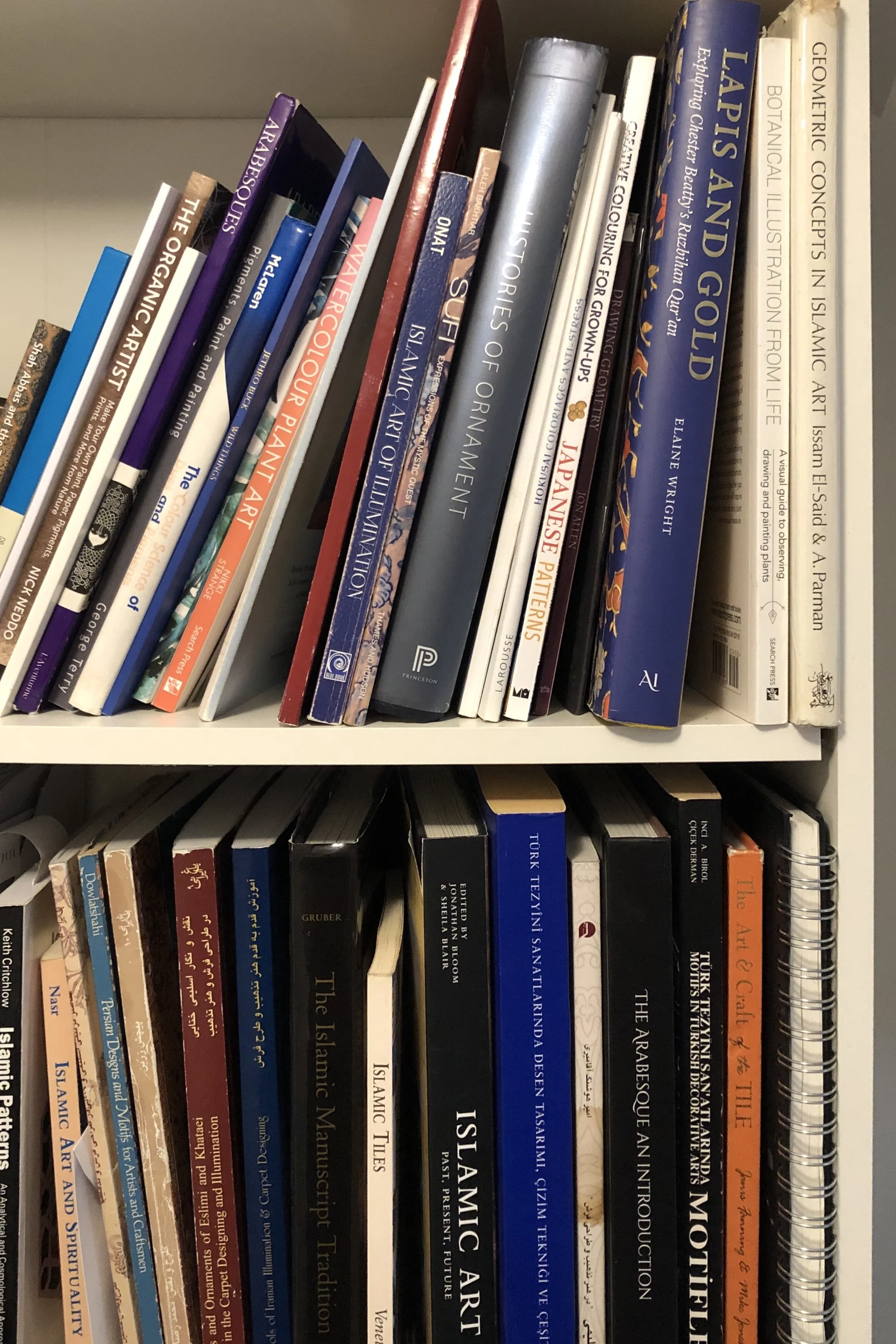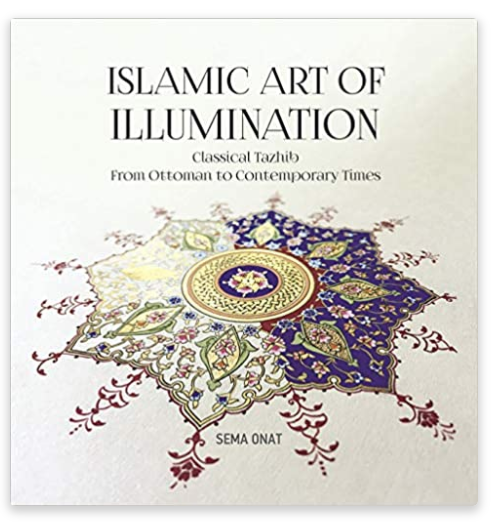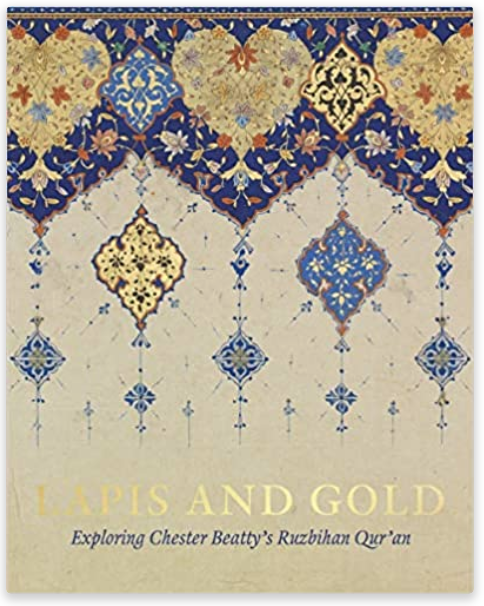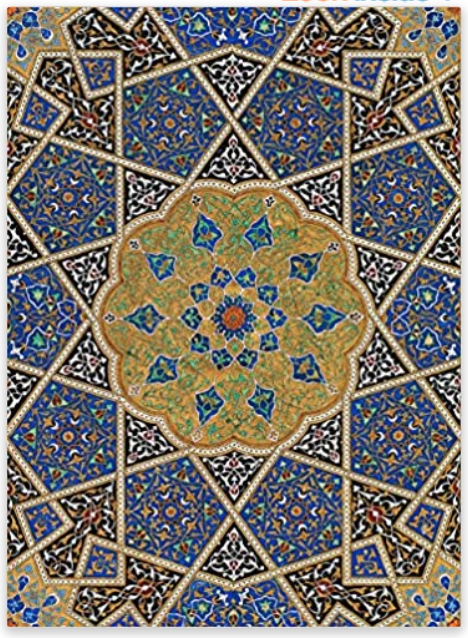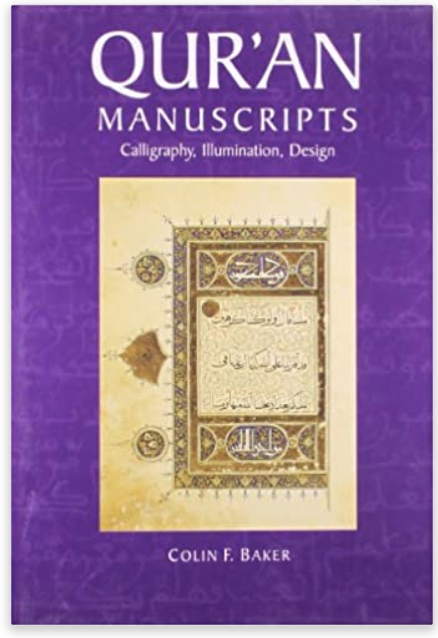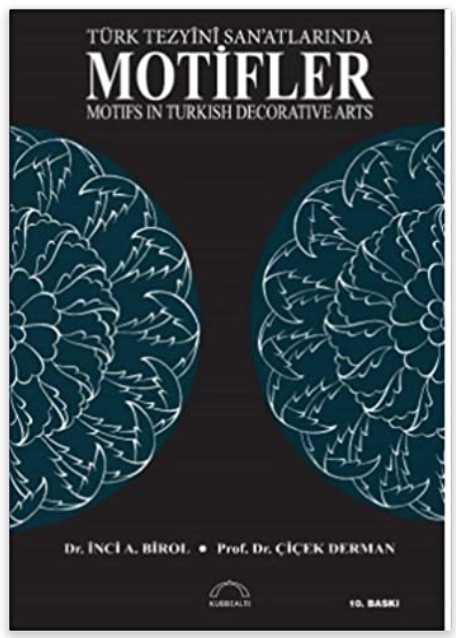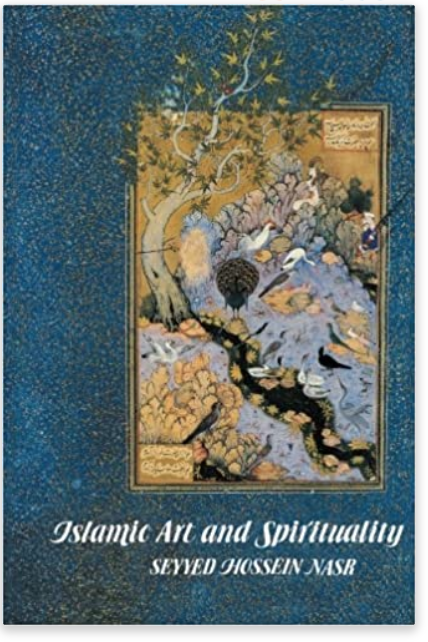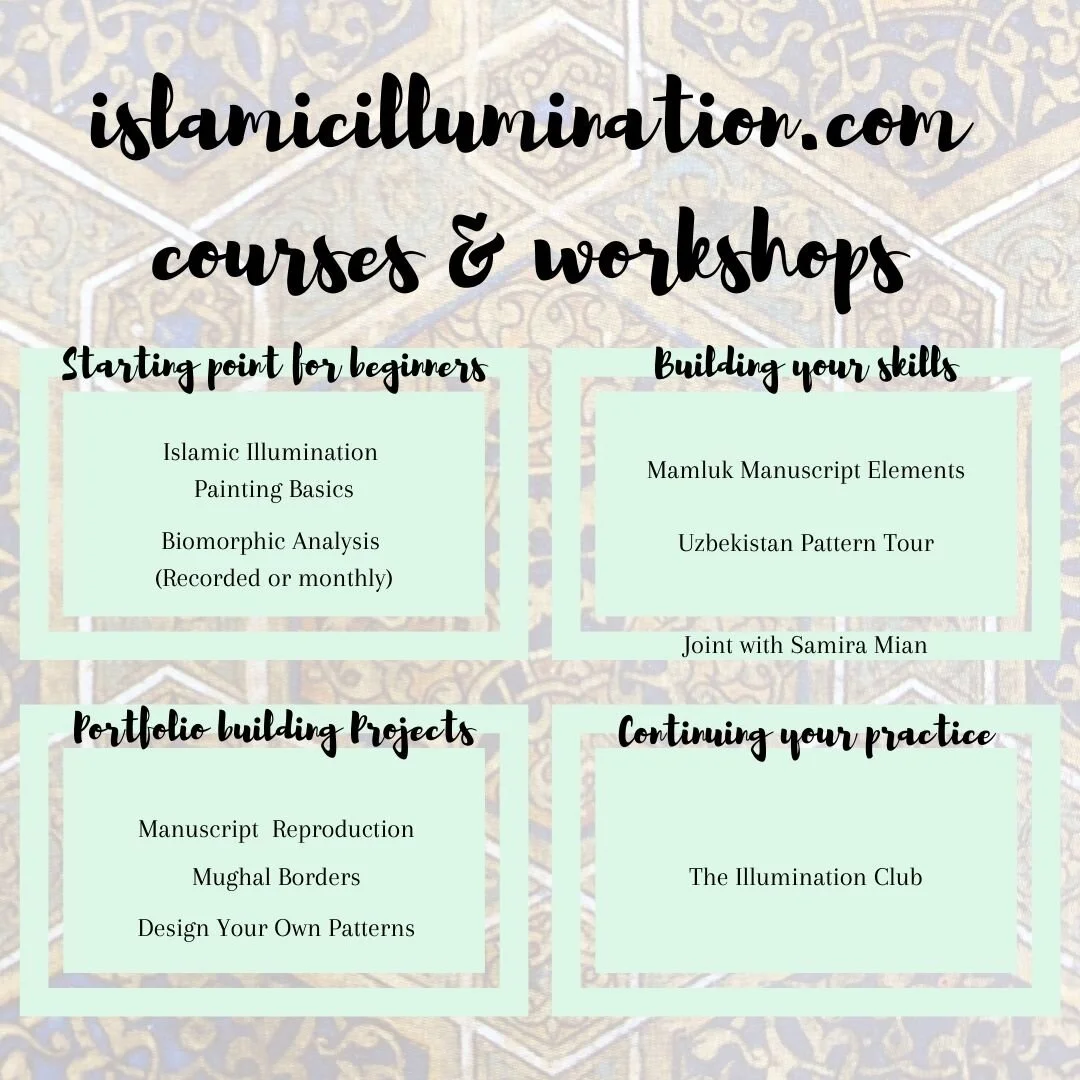Books for Islamic Art, Illumination and Patterns
You have been asking for all my book recommendations and here is a very detailed list for you with all my favourite books. Try to support your local bookstores by buying them directly from there, or check on eBay or Abelbooks for used copies. Each book includes an affiliate link with Amazon.
These book recommendations are based on books I bought and I enjoyed, you might not find every book useful for your purposes, but this is what I wish I found when I started learning about the subject. It is not a complete literature review on the subject, but this will be a very good starting point for your learning journey.
There have not been a lot of English books written on the subject of illumination, especially not about the practical aspects of paintings or advice on pattern creation, but these are a good starting point. There is not a perfect book yet, so you will have to gather information from various books.
Books about Islamic Illumination:
Islamic Art of Illumination, Sama Onet
This could be the only book that gives you a preview of Islamic illumination and it includes pretty pictures. Part three is the most useful because of the motifs it includes. Part five will help you design your own pattern with. It is however very brief and I don’t think you can only learn this art from this one book, but it is a good start and it highlights some common Turkish Motifs. The publisher’s access to Islamic and Turkish Art museum is also great because it includes lots of good images. I wish it was twice as long!
Arts & Crafts of the Islamic Lands, Khaled Azzam
This book is a must if you are learning Islamic art and illumination. It is the main text book for the Prince’s School of Traditional Arts in London and each chapter is based on a course they teach, it starts with geometry, but then there is a chapter about biomorphic patterns.
There is also a practical section that includes paint making and so on. It’s a nice introduction, but again it’s very brief and it only outlines the basics. The book on it’s on isn’t enough and you will have to read a few more and do some classes.
Curves, Lisa De Long
Lisa is one of the teachers and graduates of the Prince’s School of Traditional Arts in London and this little book is packed in information. It’s only 53 pages and everything is scaled small, but it is useful to have especially to increase your understanding of motifs. It’s not only for Islamic arts and it includes other areas of art. It’s worth getting.
Books about Islamic Manuscripts & Qurans:
Lapis and Gold, Elaine Wright
This book is a treasure, but very academic, so it depends on how much you like to read and understand the theory and the research. It’s a BIG book as well. The whole book discusses one specific 16th century Quran: the Ruzbihan Quran, which is located in the Chester Beatty Library.
It includes great photos and it feels like every aspect of the Quran has been studied, which is great. I recommend it as rich source of imagery and information, but it’s one of the pricier ones.
Splendours of Quran Calligraphy and Illumination, Martin Ling
If you are serious about learning illumination in Qurans then this book is a MUST! The pictures in this are great and they are high quality and you can see all the details really well. I have taught some of the patterns in my workshops and I dream of reproducing so many more.
It also includes a few essays that are worth reading.
The Art of the Quran
This is one of the earliest books I have got and it was very reasonably priced when I bought it, but then the price increased massively. It’s another great imagery source if you want to learn the visual motifs from drawings and observing. It doesn’t tell you how things are drawn, but you will eventually figure it out from copying.
It’s a hefty book and takes a lot of space, but I love returning to it every now and again.
The Islamic Manuscript Tradition, Christiane Gruber
This is an okay book because it talks about various aspects of manuscripts and it does include good essays. It’s focused on essays and information rather than imagery, so don’t get it for the images.
It does include one sexual pictures you might not want though, but you know how sometimes Western academic love to highlight that one not Islamic image. Other than that it’s a good read if you want a good background information beyond just pretty images.
It’s £5 on kindle
The Arabesque: Introduction, Dr.Heba Nayel Barakat
This is a good resource for information if you are especially interested in Biomorphic patterns, which is referred to as Arabesque in this book.
It is made of three chapters and each have a collection of essays from various scholars, who are experts in their field, so it’s very useful.
It has some nice pictures in there as well. It’s a useful one.
I haven’t found it on Amazon, but it’s available on the British Museum Website.
Quran Manuscripts, Colin F Baker
This is a small and light book to take around with you if you want to give it to students to look at and see some examples. It’s also very affordable and gives you the basic information.
The imagery is small and it will be hard to reproduce just by using the examples in it. I like it for its lightness though.
Books to draw patterns & paint from:
I previously posted about Iranian patterns books that I found useful to use and that they included patterns within them. They are usually hard to find unless you have an access to a Turkish bookstore or you get luck on eBay. Similar patterns sometimes appear on Pinterest, but please be careful who you copy from Pinterest or Instagram because you can easily violate copyrights on there without realising.
To learn more drawing patterns, I would recommend attending the pattern analysis or the pattern drawing workshops that I am teaching. The workshops get updated regularly.
Motifs in Turkish Decorative Arts, Inci A Birol.
There are copies of this book that are written in both English and Turkish and I referred to some of the information that are written in there and the illustration in this post:
It is a very good book in terms of information and
Persian Designs and Motifs for Artists and Craftsmen, Ali Dowlatshahi
This book is a little light one with only pattern sketches, there is no written information and hardly any sources, but it’s a good starting point if you just want to trace some designs and paint to practice.
Authentic Turkish Designs, Azade Akar
Exactly as the book above, no written information and only motif examples and some patterns. They are fun to paint and get used to, but since it’s a wildly available book, you will probably see lots of others painting them as well. Some of the patterns are marked with information of origin, but it’s not the case for every motif.
Books about Islamic Geometry and Geometric Patterns
Islamic Design: A Genius for Geometry, Daud Sutton
This is a great little book filled some good insight on Islamic geometric patterns. You can even get it on kindle for £3. I also think the author is brilliant, so it’s a good buy.
I tried few things from it as a beginner, but I found it slightly difficult, but when I learnt more about patterns from classes, following it got easier.
Islamic Patterns: An Analytical and Cosmological Approach, Keith Critchlow
I would say that this is a more intermediate to advanced book rather than beginners, but it has some good theoretical insights on patterns. It has some steps, but I found that I needed to learn more before I can follow them.
If you are into maths and calculations and can figure things out then this will be great for you.
Books about spirituality in Islamic arts:
It’s up to you if you want to believe that Islamic arts are spiritual and a reflection of deep system of religious thought, but you don’t have to believe that to practice the art. However, if you are interested these books will be interesting to you.
Islamic Art and Spirituality, Seyyed Hossein Nasr
This book is very mind opening and it’s so interesting to see the connection between spirituality and arts. The author os the book is very well known in the field of spirituality and Islamic studies.
Since it’s an academic book, you will find it a little heavy read with no images, but it’s very informative.
Sufi: Expressions of the Mystic Quest, Laleh Bakhtiar
As the name suggests, this book is about the Sufi thought behind Islamic art, pattern and geometry. I wasn’t in love with this book, but it is useful if you want to read on this particular subject.
Books about Islamic Tiles:
Islamic Tiles, Venetia Porter
This little book is very informative and it tracks the development of Islamic ceramic tiles particularly the pieces in the British Museum. The book has a few good photos in there too, but not many.
Damascus Tiles, Arthur Millner
I got this book for the images and it does have a few good ones and also from the British Museum. I thought it would have more good resources images, but they aren’t as many and the one on the cover is the prettiest.
The writing is informative, but only get it if you want to know about this specific topic and the Iznik tiles that was popular in Damascus.
Iznik Tiles
Again as the name suggest, this book specifically discusses the Iznik tiles and their techniques. Like the book above it is a product of the British Museum and it points to the tiles they have in their collection.
It has some nice images, but not as many, so get it for the essays on the subject.
General Books about Islamic Art and Architecture:
Islamic Art, Barbra Brend
I really like this book because it has a very comprehensive overview on the various fields within Islamic arts. It’s not a perfect book and I might have some issues with some generalisation, but it’s a good starting point and from there you can research each area separately.
Read it for free on Archive.org
What is “Islamic” Art? by Wendy Shaw
This is the newest book on the subject and I found it to be so interesting, I got a few messages asking me if it’s “worth it”, and short answer is yes it is.
Long answer: every book is worth it especially a new and academic one because every book gives us a new piece of information that will serve us in the long run.
This is another academic book with limited images and if I am buying this again, I will get it on kindle since I am quicker reading on there.
